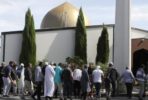For those interested in political science:
I have discussed the concept of path dependence in government institutions several times. Basically, in historical institutionalism, a policy, structure or rules tend to be retained from its founding or initial development. Because stable institutions have defined their characteristics, decisions today are based on the choices made before it.
B. Guy Peters argues that path dependence develop into local optima. In relating economics to policy, he stated:
“These inefficiencies produce numerous local optima and firms, once they find such a local optimum, seize it and that local optimum becomes the dominant solution to the problem. Phrased more in terms of the operations of government programs, a particular program addressing a policy problem may not be the best in the abstract but once it has been shown to produce some positive results it will dominate other solutions that may in principle, be superior but which will require movement from that existing and seemingly functional program”.
Path dependence and the adoption of local optima is not confined to government policies. In Singapore, we see a similar behavior with Muslim organizations.
These organizations have taken an approach in political engagement and regardless of its inefficiencies, have remained within the engagement model. While there are better models to adopt, they are unable or unwilling to change from the way they have always engaged because it appeared to have worked before.
Thus, the inability for the Muslim community to solve their problems cannot be viewed simply from the government’s refusal to respond or change. Our organizations have been caught in an engagement inertia. Until we acknowledge that the model we have utilised all these years are not the best or most appropriate, we will always remain in this situation.
We have taken a specific model that has not worked for decades and expect a different result. Either we change our goals, change those we engage with or change how we engage.
Authored by Zulfikar Shariff








